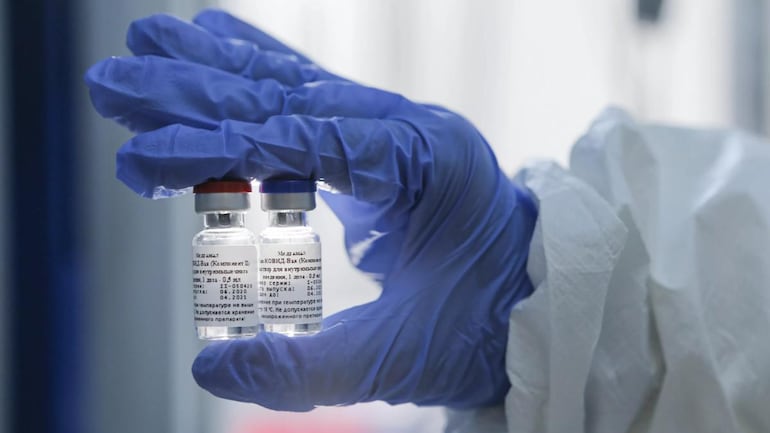
Covid-19 vaccine race: Need to fund the underdogs if front-runners fail to deliver
The trial hiccup in the Oxford-developed Covid-19 vaccine has revived fear about possible failure or short of desired success for front-runner candidates. Some experts have called for funding of what are being called underdog vaccine candidates.
by Prabhash K DuttaHIGHLIGHTS
- To allay doubts over Covid-19 vaccine, Harsh Vardhan said he is ready to take the first shot
- Some health experts have warned against hurried development process for Covid-19 vaccines
- A section of experts have called for funding 'underdog' vaccine candidates
Union Health Minister Harsh Vardhan has apparently announced a "delay" in the Covid-19 vaccine rollout in India. He said the Covid-19 vaccine "may be ready by the first quarter of next year". Most people, going by frequent announcements by the developers, believed that one or the other Covid-19 vaccine would be available by the year-end.
Breakneck speed at which Covid-19 vaccine development programmes are underway across the world is unprecedented. The record for fastest vaccine development belongs to mumps vaccine. It took four years.
Developers of some of the leading Covid-19 vaccine candidates have promised end-of-the-year deadline for a vaccine to be available. The vaccine race has been highly competitive -- at times along national lines -- with skeptics expressing doubts over efficacy of the vaccine candidates given the "hasty" nature of their development.
The purported push given by the Donald Trump administration of the US for launching a vaccine before the presidential Election Day in November has also added weight to the doubt-cloud. In between came the report of a person developing severe illness after he/she was inoculated the Covid-19 vaccine developed by Oxford University scientists.
It was in this backdrop, Harsh Vardhan said a Covid-19 vaccine may be available for India by March-end next year, signaling that the government does not want to rush for a vaccine that may create fresh unseen health problems. Second significant part of his Sunday Samvaad was that Harsh Vardhan said he was ready to take the first shot of the vaccine that would be rolled out for the country -- another indication that the government is keeping safety as its top priority.
FRONT-RUNNERS
According to Norway-based Coalition for Epidemic Preparedness Innovation (CEPI), a fund created to finance and coordinate vaccines for outbreaks, there are more than 320 Covid-19 vaccine candidates under various stages of development.
The World Health Organisation (WHO) is tracking the development of around 180 Covid-19 vaccine candidates, which are in pre-clinical or clinical trials phases. At least 35 of them are in clinical trial phases with eight in the phase-III or the final phase of human trials.
India is involved in the development of eight Covid-19 vaccine candidates. Two of them are in phase-II trials. The Covid-19 vaccine candidates that have generated maximum interests are:
- AstraZeneca/Oxford University
- Moderna
- Pfizer/BioNTech
- Russian vaccine, developed by Gamaleya Insttiute in Moscow
- Chinese vaccine, Sinovac
CLOUD OF DOUBTS
Oxford vaccine trial had to be halted last week in the UK following report of one person developing serious complications. Trial in India was also halted two days later. Now, trial has resumed but it has created a doubt on its success.
Russian vaccine, whose arrival was announced by President Vladimir Putin, is getting acceptance now after earlier reservations particularly over its small sample size (of 70 only). However, skeptics are still not confident about its data.
Most promising Chinese Covid-19 vaccine candidate, Sinovact too lacks universal credibility in the wake of suspicion raised by some experts due to alleged lack of transparency about its methodology. The clandestine push by the Chinese government too has not helped its cause.
Health experts across the world including some at the WHO have warned that the Covid-19 vaccine race -- prompted by overenthusiastic pharmaceutical giants and some of the governments -- may not necessarily yield an early success. They warn against going for a hurriedly developed Covid-19 vaccine.
UNDERDOGS CAN WIN RACE
Meanwhile, some health experts have called for funding "underdog" Covid-19 vaccine candidates. According to a report published in the Nature, several promising Covid-19 vaccine candidates -- which may have more sound bio-technological logic -- have struggled to get fund for next-level trials.
One such vaccine candidate is being developed by acclaimed American virologist Peter Palese. The Nature report says the Covid-19 vaccine candidate has shown complete protection from Covid-19 in mice in an experimental model.
This Covid-19 vaccine candidate consists of a genetically modified bird virus, which has been programmed to make a protein found on the surface of the SARS-CoV-2 coronavirus. This protein helps SARS-CoV-2 to infect human cells.
According to a research paper, yet to be peer reviewed, this vaccine candidate fully protected mice from Covid-19 during experiment. Details of the experiment can be seen here.
This bird virus also grows in chicken eggs making this Covid-19 vaccine candidate cost-effective like most flu-vaccines in manufacturing compared to vaccine candidates being developed by multi-national giants. The vaccine production can be ramped up using tried-and-tested technology, the Nature report says.
The report underscores -- what experts at the WHO and across the world have warned about -- that early favourites could fail, confer only partial protection or work poorly in certain age groups. Addionally, the cost could be high for some of the front-runners, as the pharma giants have pumped in billions of dollars.
A high-cost Covid-19 vaccine may become unsuitable for wide-scale deployment in lower-income countries.
Given the nature of the SARS-CoV-2 and considering the fast spread of Covid-19 from a mere outbreak in Wuhan to becoming a pandemic in about three months, the world would be unsafe if there is a single coronavirus carrier. This may be an occasion for the governments and international agencies to look beyond the obvious candidates and fund a diverse selection of Covid-19 vaccine candidates in their development.